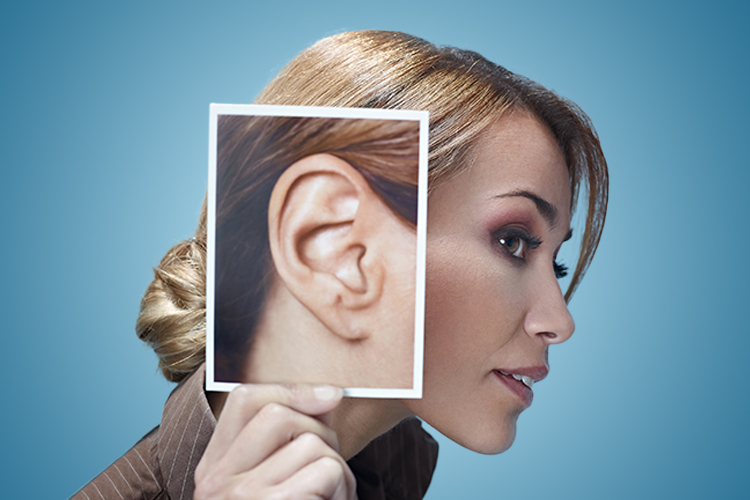
A hearing screening is a first quick and easy step on the path to better hearing
Making sure you can hear throughout your life improves your quality of life and makes it easier to communicate with the people in your world. Don’t let hearing problems get in the way of your activities and social life!
What is a HEARING SCREENING?
As the name implies, a hearing screening is used to screen for hearing loss. A hearing health professional conducts this quick and easy test, which provides a good overview of your hearing health.
It only takes a few minutes!
The hearing screening has four simple steps:
- Answer questions about your hearing and specify the times when you have difficulty hearing well.
- Have your ears examined with an otoscope to check the condition of your ear canal and ear drum.
- Using headphones, listen to a range of sounds from high to low and try to notice the quietest sounds at four different frequencies (Hertz), in one ear at a time.
- Receive the results and the suggested treatment according to the amount of loss detected.
It’s fast and painless!

We guide you in your approach
The hearing health professional will then explain the steps you can take toward better hearing.
If hearing loss is detected, you will be encouraged to have a complete hearing evaluation in audiology to confirm your hearing loss and to get a more comprehensive picture of the loss so you can be offered the best solutions for your situation.
The difference between a hearing screening and a complete hearing test
Be aware that a hearing screening is not a diagnostic test. Hearing loss can only be confirmed in a complete hearing evaluation.
A hearing screening cannot be used as a test to choose hearing aids or to request financial assistance from a government organization to purchase hearing aids.
Make an appointment to get to the bottom of it once and for all!
It is recommended to consult a hearing health professional:
– As soon as you notice signs of hearing loss
– For a hearing test every two years, after 50 years old.











